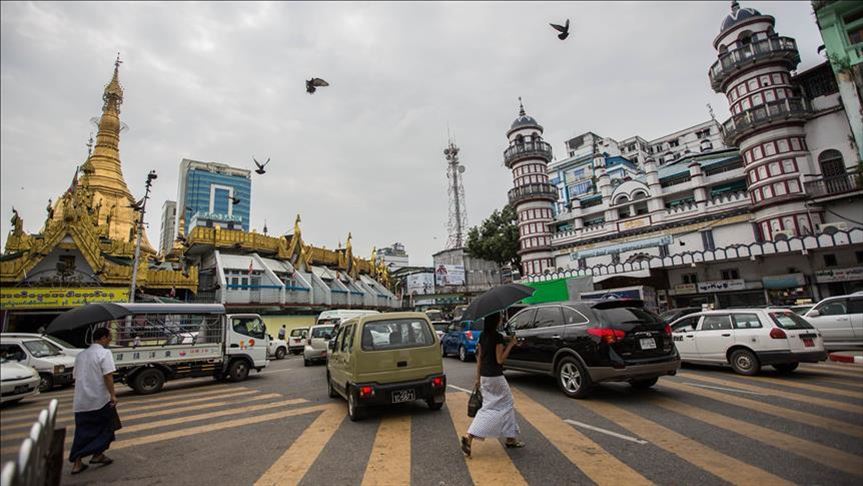Myanmar: Humanitarian groups urge truce amid pandemic
Lacking basic health care, overcrowded IDP camps in Myanmar are COVID-19 tinderboxes, warn rights groups

YANGON, Myanmar
More than 300 advocacy groups in Myanmar called for an immediate cease-fire in the western Rakhine state, with hundreds of thousands displaced by the fighting are vulnerable to coronavirus outbreak.
Fighting has intensified in some ethnic areas as Myanmar, which has 14 confirmed cases of COVID-19, is struggling to control the disease's spread.
A total of 345 community-based organizations issued a joint statement on Monday, calling on the government and ethnic rebel groups to stop fighting immediately.
Both sides should declare a cease-fire and "work together to help those in need," said the groups’ spokesman Saw Min Naing.
Naing told Anadolu Agency that a truce would "allow humanitarian aid to reach the internally displaced people [IDPs] who are most vulnerable to the outbreak."
The government has been drawing up a plan to respond to possible coronavirus infections at 128 IDP camps in the country, state-run media reported last week, citing the Ministry of Social Welfare, Relief and Resettlement.
The report said there are 184,333 people have taken shelter in the camps set up in ethnic areas as of January 2020, including the northeastern Shan state and western Rakhine state.
Anadolu Agency was unable to reach the ministry for further details on the plans.
A global rights group said on Monday that Myanmar's government had failed to consult with humanitarian organizations in drafting a COVID-19 response plan for IDPs.
"Years of conflict, neglect, and abusive policies by Myanmar's government and military have left hundreds of thousands of displaced people sitting in the path of a public health catastrophe," said Brad Adams, the Asia director of the Human Rights Watch (HRW).
"The authorities need to ensure these groups have access to information, humanitarian aid, and health services, including prompt testing and isolation for those who show symptoms," he said in a statement for the HRW.
Overcrowding, a mobile Internet shutdown, blocks on humanitarian relief, and movement restrictions have left displaced communities vulnerable to a virus outbreak, Adams added.
The statement urged the government to take urgent steps to reduce the risk of COVID-19 transmission among an estimated 350,000 people displaced due to conflict and violence across the country.
Access to health facilities is extremely restricted in Rakhine state, where about 130,000 Rohingya Muslims have been confined to open-air detention camps since communal violence in 2012.
"Donors are ready to help, but nothing can happen unless the Myanmar government ends restrictions on movement and permits aid groups the kind of unfettered access needed for a rapid, substantive response to the virus," said Adams.
The coronavirus emerged in Wuhan, China last December and has spread to at least 177 countries and territories. The World Health organization declared the outbreak a pandemic.
The number of confirmed cases worldwide is over 766,300, while the death toll has surpassed 36,800, and over 160,000 have recovered so far, according to data compiled by U.S.-based Johns Hopkins University.
Despite the rising number of cases, most who become infected suffer only mild symptoms and recover.
Anadolu Agency website contains only a portion of the news stories offered to subscribers in the AA News Broadcasting System (HAS), and in summarized form. Please contact us for subscription options.







